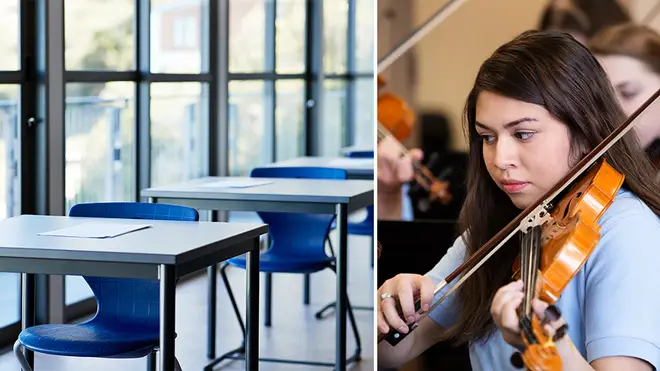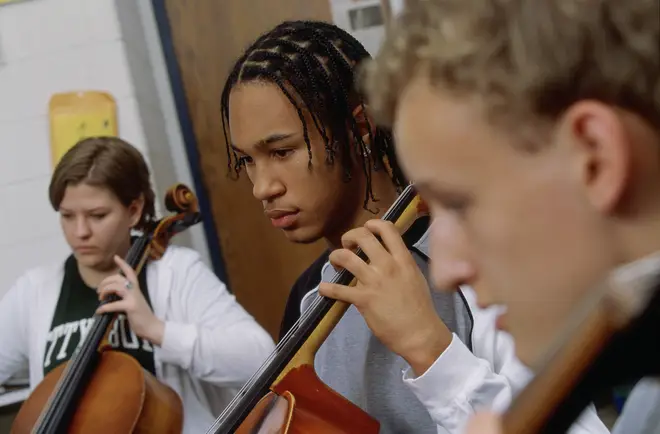Music A-level students have halved in the last decade
13 August 2020, 14:01

47 percent fewer pupils are taking Music at A-level compared to a decade ago, today’s A-level results show.
Today’s A-level results show the number of pupils studying Music has fallen at an alarming rate over the last decade.
Since 2008, there has been a 47 percent decline in Music entries at A-level.
The results, published today by the Joint Council for Qualifications, show that 12 years ago, nearly 6,000 male and 4,000 female candidates studied Music at A-level across England, Wales and Northern Ireland.
Now, only approximately 2,700 male and 2,500 female pupils are taking the subject as far as sixth form.
Deborah Annetts, chief executive of the Incorporated Society of Musicians, said the results were “extremely concerning”, and pinned the plummeting rate on funding cuts to creative subjects in schools.
Read more: Government invites ‘music experts’ to create new school music syllabus >

“Funding cuts and accountability measures, such as the English Baccalaureate (EBacc), are devastating music education and creative subjects, yet the Department for Education remains fixated on this highly flawed policy,” she said.
“It is vital that studying music does not become the preserve of the privileged few, which is why we urge the government to either extend the EBacc to include arts subjects, including music, or scrap it altogether.”
Music A-level gives pupils the chance to develop their performance and composition, as well as to learn about music history and theory across a variety of genres. But for some years, it has been at risk – markedly, within state education.
In 2018, it was warned that A-level music, French and German were in danger of being removed from state schools and colleges in England because of funding cuts.
Leading musicians, from the Kanneh-Mason family to singer Ed Sheeran and superstar Elton John, have all spoken out on the importance of music education in schools.

Classical music isn’t racist, insists Sheku Kanneh-Mason
In light of the plummeting numbers, Annetts urged the government to refresh the National Plan for Music Education. Published in 2011, the plan outlined how high quality and sustained music education in the school curriculum is the cornerstone of a child’s music education.
“In light of the continued decline in music education, and the ongoing challenges the sector faces caused by COVID-19, the National Plan for Music Education, which expires this year, must be refreshed as a matter of urgency,” Annetts said.
This year’s A-level results have all been awarded on predicted grades, after school pupils were unable to sit their final exams due to COVID-19.
In England, nearly 40 percent of A-level results were downgraded by Ofqual from teacher predictions. There has also been an outcry around fair grading across schools, with pupils at private schools seemingly advantaged by Ofqual’s final grades, while state sixth forms are losing out.


































